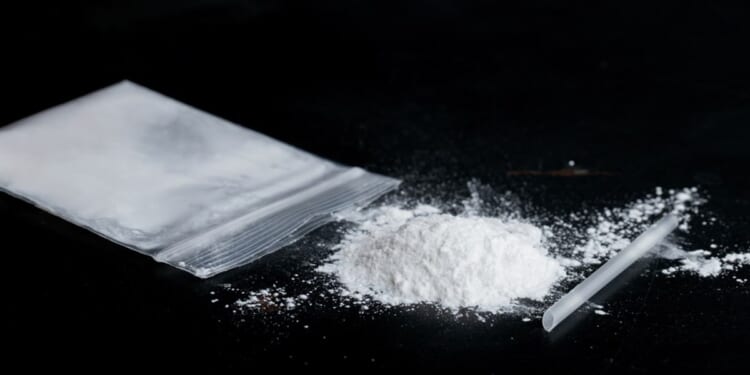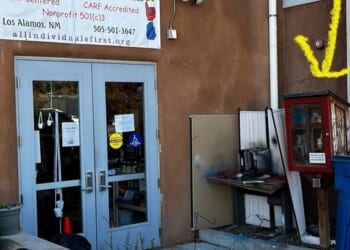DRUG reform is back in the news after the Scottish Greens voted at their annual conference for the legalisation and regulation of drugs to become an official policy goal. This was after the leader of the Green Party, Zack Polanski, also backed the legalisation of all drugs, including heroin and cocaine.
Campaign groups argue that legalising and licensing drugs will take them out of the hands of criminal gangs and off the streets. Advocates for stricter laws and regulation believe that prohibition acts as a deterrent and sends a clear message about the dangers involved in taking these substances.
It is a perennial debate, involving complex, interrelating social factors; but, for those living in Britain’s most disadvantaged communities, the sale and abuse of drugs is a daily reality. The Revd Alex Frost lives and ministers in such a community, in Burnley, a place ravaged by drug use, namely ketamine addiction (News, 7 March). He has called on the Government to increase restrictions, by reclassifying ketamine from a Class B substance to Class A, the same as heroin and cocaine.
It is argued that this reclassification would enable law enforcement to punish the dealers who are deliberately targeting vulnerable children and young people. A legal acknowledgement of the seriousness of this drug would enable better funding for age-appropriate treatment and better inform a nationwide campaign to educate children about the dangers.
Ketamine is a powerful anaesthetic drug, which has increased in use by more than 200 per cent during the past decade. In January, the Government requested a review of the harms caused by its misuse, and, last week, launched a new campaign across social media to warn children of the dangers. One in ten children entering drug treatment admits to having a problem with ketamine — some as young as 11 years old, File on 4 Investigates: The ketamine trail reported in June.
Reclassification would help to counter the belief that ketamine is more socially acceptable than other drugs, an impression that understates its harm. It is cheap, readily available, and, worst of all, fashionable. The effects of ketamine addiction are rapid and extreme, leading to severe urological injuries, including bladder damage, which can result in permanent incontinence and chronic pain. Decriminalising it would do nothing to mitigate this very real harm.
IN 2022, Transform, a drug-policy charity that lobbies for decriminalisation, facilitated a meeting with Christian leaders to discuss ethics and help to shape what a Christian perspective on drug policy might look like. They concluded that harm could be reduced by decriminalising drug use, and recommended an approach of meeting people where they were — one that avoided authoritarian attitudes so as to be welcoming and inclusive. They argued that “people should have the right, if they are using drugs, to use them as safely as possible.”
This may be one way to reduce very short-term physical harm, but it does not address the emotional and psychological effects of drug use on that individual, their family, or their community. It is a stance that is resonant of other liberal arguments informed by individual choice.
The consultation with Transform also identified justice as a foundational Christian principle and a guiding ethic for approaching drug policy and care for addicts. Justice might involve targeting the suppliers, the people who are flooding Britain’s streets with ketamine, but there is disagreement on the means to accomplish this. “Persisting in our current policies will only result in more drug abuse, more empowerment of drug markets and criminals, and more disease and suffering,” the former Archbishop of Canterbury Lord Williams says, quoted on the Anyone’s Child website, a charity affiliated to Transform. This vision of justice is concerned that individuals are unfairly marginalised are not further punished for drug use.
Middle-class policy-makers and lobbyists who are far removed from the day-to-day realities of social landscapes such as Burnley are not always the best people to inform legislation. Legalising harmful substances such as ketamine is no real guarantee of safety, since there is no safe way for anyone, especially a child, to take ketamine recreationally.
A permissive attitude to harmful behaviour might also be morally injurious to marginalised people. It risks dismantling the social contract irrevocably, where communities that live with the hellish reality of drug-dealing on street corners and drug abuse in parks have a keen sense of justice when it comes to those who knowingly sell harmful substances to their children for profit.
When further considering matters of justice, we might ask “Who is my neighbour?” The parable of the good Samaritan (Luke 10.25-37) is Jesus’s answer to that question. The Samaritan is an unlikely neighbour: the one who helps, but who is least expected to. Of course, the person whom he helps is also a neighbour, because the driving theme of the story is relationship, evidenced by both love and action, and how you cannot have one without the other.
AT LEAST one person a week dies from ketamine addiction. That person is a neighbour, too, even if we do not have to risk our own safety because we do not happen to live anywhere near this dangerous road. If there is to be justice, care, and compassion, there needs to be a proper awareness of their plight, besides focusing on more fashionable and higher-profile causes.
Jesus taught that deliberately harming children should not go unpunished: “If anyone causes one of these little ones to stumble, it would be better for them to have a large millstone hung around their neck and to be drowned in the depths of the sea” (Matthew 18.6.). Drug reform and policy ought to be informed by the experiences of the most vulnerable, and yet, at a recent meeting at the Home Office with the Advisory Council on the Misuse of Drugs, “there was not one piece of data provided on children using ketamine,” Fr Frost, who gave evidence, says.
Meeting people where they are, with compassion and mercy, is meet and right, but, without a commitment to wider justice, it is futile. Should the good Samaritan be expected to patch up the bleeding traveller for ever, or, at some point, should we not demand that the road be made safer for all?
Jayne Manfredi is an Anglican deacon, writer, and radio broadcaster.
offtherailsbyjayne.substack.com
Read her latest television review here.

















